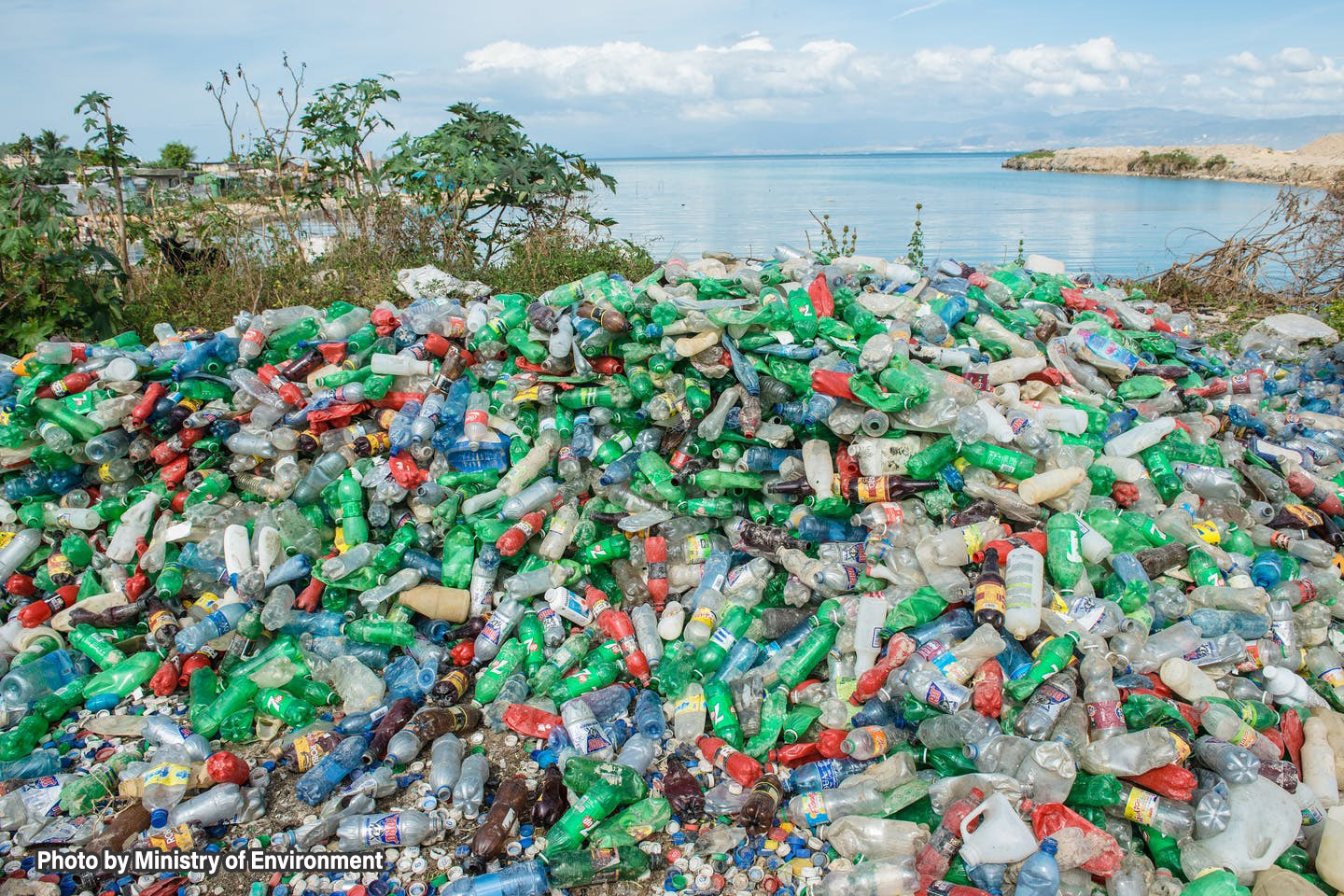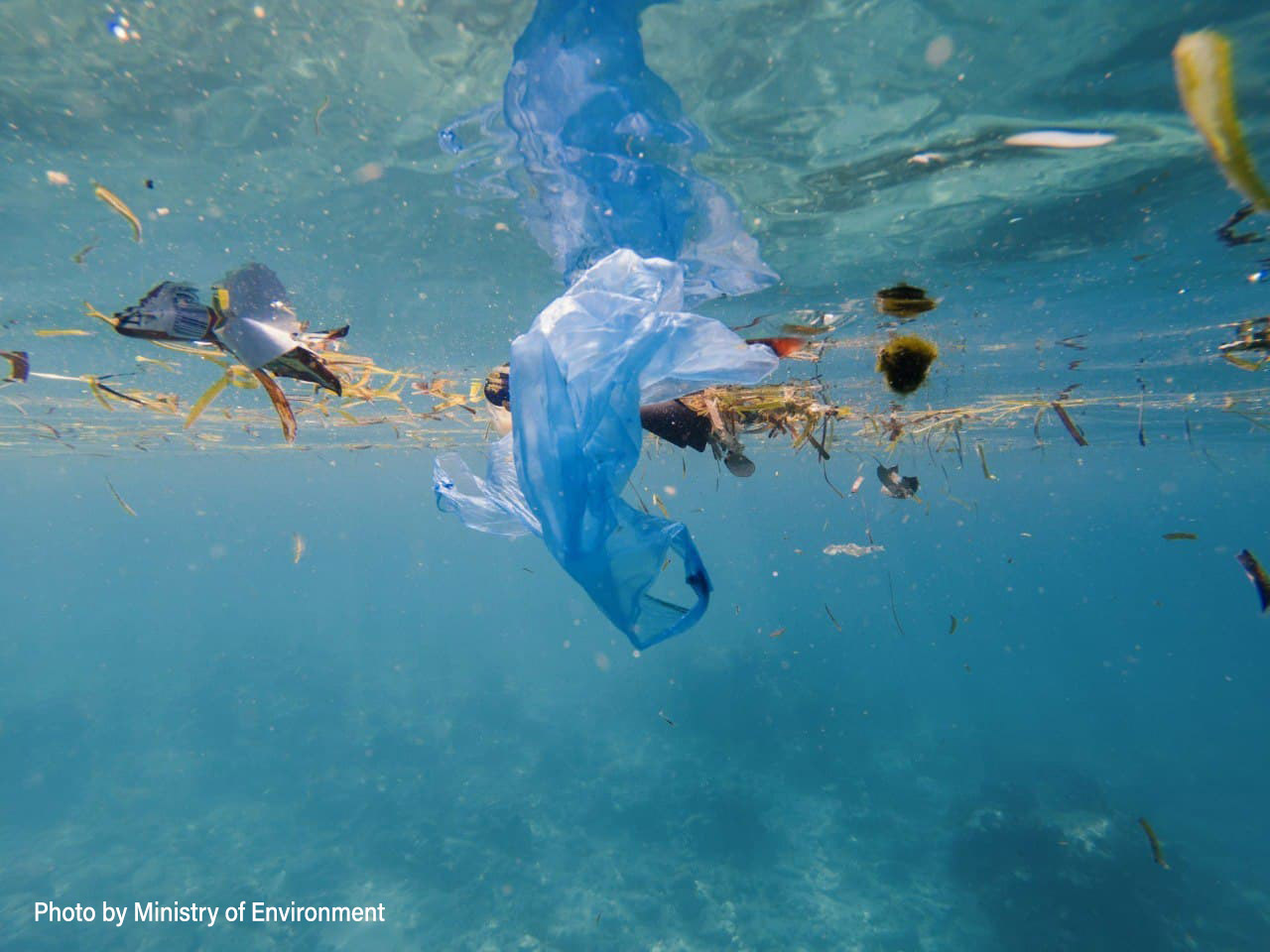Across the world, it is estimated from 8 to 13 million tons of plastic reach the oceans each year. More than one million mammals, fish and birds suffer or die annually either from ingesting this plastic or becoming entangled in it. It is reported that around 90% of all fish now carry plastic particles in their stomachs. These toxic chemicals accumulate throughout the food chain and eventually also pass into human bodies.
About 90% of plastic waste transported into the ocean comes from just 10 major rivers. These are the Yangtze, Yellow, Hai, Pearl, Amur, Mekong, Indus and Ganges Delta in Asia, and the Niger and Nile in Africa. They run through populous areas of some of the least developed countries where there is not only a lack of waste collection and recycling infrastructure, but also limited environmental awareness.
The problem of marine plastic pollution is closely linked to the surge in plastic production and use. The worldwide total volume of plastic production has reached 8.3 billion metric tons. As a convenient, cheap, and durable material, plastic has completely transformed how we live and how businesses operate.
This change is visible in Cambodia, too. Thirty years ago, plastic was not as ubiquitous. People brought bamboo baskets to local markets to buy fruits and vegetables, which vendors wrapped in lotus or banana leaves. These biodegradable materials are now almost entirely replaced by plastic bags, straws, food packaging and bottles.
In today’s Phnom Penh, plastic waste amounts to more than 20% of the total volume of municipal waste (3,600 tons) generated per day, putting immense pressure on waste management services. In urban areas, illegally dumped plastic waste blocks waterways, clogs sewage and drainage systems, and elevates flood risks.
In areas without waste collection services, plastic waste is often burned in the open air or disposed of at informal dumpsites, on streets, or into local waterways, which carry it to the sea. The burning of plastics releases harmful chemicals which pose serious risks to public health.
In coastal areas, the impact of plastic waste on the tourism industry is particularly significant. Plastic waste makes up 80% of the debris found on Cambodia’s beaches, deteriorating coastal areas’ natural environment, marine ecosystems, and scenery.
This enormous growth of plastic waste and the challenge it poses is not unique to Cambodia. In fact, a similar situation can be observed in other parts of Asia. In those areas, too, a large number of people and businesses throw away plastic waste next to or into waterways, perhaps unaware of how waste impacts and disrupts marine ecosystems and food chains, including our own.
What can be done?
Since 2018, the Royal Government of Cambodia has promoted the 4Rs – Refuse, Reduce, Reuse, and Recycle – framework to tackle plastic pollution.
To this end, a range of so-called “carrot-and-stick” measures relating to education, incentives and law enforcement have been formulated and implemented. For instance, the Royal Government has introduced a small levy on plastic bags, targeted at supermarkets and shopping centers. This levy has successfully reduced the use of plastic bags by more than 50% for major supermarkets. The funds collected from this levy are used to support green initiatives throughout Cambodia. These include the installation of water fountains and solar panels in public schools to help build more eco-friendly schools and public spaces.
The Royal Government is currently drafting additional regulation on single-use plastics that are thrown away. The Circular Economy Strategy and Action Plan has also been drafted, with support from Sweden and UNDP, as one of the policies that promote the implementation of the 4Rs.
Meanwhile, as part of a larger initiative, the Royal Government has strengthened the technical and institutional capacity of the subnational administrations to deal with waste management by implementing its decentralization and deconcentration policy. The Ministry of Environment has devolved solid waste management functions to local administrations and developed a range of enabling policies, frameworks, and technical guidelines. The Ministry has also provided technical and financial support to the local administrations for fully performing the new functions, for example through provision of waste management equipment such as small-scale incineration facilities, garbage trucks, and bins and by training district governors and commune chiefs in waste management issues.
In addition to these initiatives, tackling plastic waste requires further systematic changes not only at various national and subnational levels, but across the entire lifecycle of plastic from production to import and use, to disposal or recycling.
Cambodia is not a major producer of plastic products and most plastic items are imported. At the same time, Cambodia does not yet have adequate infrastructure or sufficiently advanced technologies for waste management and recycling. As plastic waste continues to increase, there is now an urgent need to reduce the volume of plastic waste in Cambodia and to create an environment where waste is properly managed, recycled or recovered.
First, the import and sales of single-use plastic must be regulated. Major industries using single-use plastic like plastic bottles need to create product designs that are easily recyclable and actively support recycling, for example through an Extended Producer Responsibility scheme. Businesses and people need to significantly cut down the use of single-use plastic and adopt sustainable alternatives. Plastic waste needs to be sorted from other waste to enable reuse, recycling or energy recovery. Further support from the Royal Government as well as joint initiatives and cooperation from developed countries and development partners is a critical enabling factor to build and promote the recycling industry in Cambodia.
The Government of Japan has now signed a US$3 million grant agreement with UNDP for a new project that supports “Combatting marine plastic litter in Cambodia.” Implemented by the Ministry of Environment, the National Council for Sustainable Development, and UNDP, this initiative aims to prevent and minimize plastic waste pollution on land and in the ocean, by promoting the 4Rs framework. It will develop regulations, raise awareness, and support the reduction of plastic waste, and the promotion of recycling and plastic alternatives.
By bringing all key players together, urgent action can be taken to reduce plastic waste in Cambodia and the world and ensure the protection of marine ecosystems for generations to come.
H.E. Say Samal, Minister of Environment, The Royal Government of Cambodia
H.E. Mikami Masahiro, Ambassador Extraordinary and Plenipotentiary of Japan to the Kingdom of Cambodia
Mr. Nick Beresford, Resident Representative, UNDP Cambodia

 Locations
Locations





